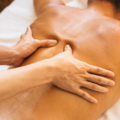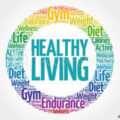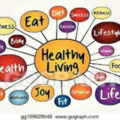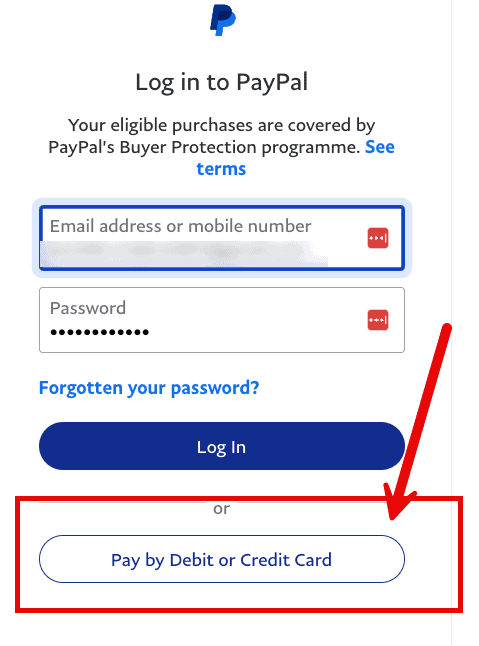Tutorials and helpful posts on healthy living with Thai Massage.
 Let me guess. You’ve been on keto for 5-6 months and enthusiastically thinking this is how you’ll finally wrangle your sugar cravings into submission! You’re loading up on healthy fats, avoiding grains, and ditching highly processed, high-carb foods. Yet there’s that incessant nagging. You know, the one that tells you that life is too short not to indulge in that giant Costco muffin or the more paleo-friendly version, another square (or three) of dark chocolate.
Let me guess. You’ve been on keto for 5-6 months and enthusiastically thinking this is how you’ll finally wrangle your sugar cravings into submission! You’re loading up on healthy fats, avoiding grains, and ditching highly processed, high-carb foods. Yet there’s that incessant nagging. You know, the one that tells you that life is too short not to indulge in that giant Costco muffin or the more paleo-friendly version, another square (or three) of dark chocolate.
For a lot of people, including my own clients, moving toward a fat- or protein-dominant diet does the trick. You may have seen earlier this year where he says “it takes two to three days of very-low-carb eating for the liver to start pumping out ketones” and that cravings will “decrease noticeably within three to ten days.” Research backs it up too, concluding that cravings are significantly reduced almost immediately as people get into ketosis.
Things like sleep deprivation, chronic stress, and gut dysbiosis are also shown to cause cravings for a variety of physiological reasons. But let’s say you’re getting a solid 8-9 hours of uninterrupted sleep, your stress levels are under control, your gut microbiome is balanced — and you’re still struggling with cravings. Then what?
Why Can’t I Quit Sugar?
Cravings are often more psychological than they are physiological. Maybe you’ve noticed that too. Maybe you’ve noticed that you start to have cravings any time you have a stressful day or feel anxious or deprived or smell something that reminds you of your favorite snickerdoodle cookie from childhood. In my experience, these are the top 5 emotionally driven reasons you might still be struggling with sugar cravings:
1. Your Diet is Too Restrictive
Eliminating certain foods and food-like items like , sugar, and refined carbohydrates is a good thing in general. But being too restrictive — or perceiving how you’re eating as a diet can end up backfiring. In fact, this study shows a direct correlation between food restriction and cravings. Researchers looked at food cravings records of 52 women dieting to lose weight and 37 non-dieters and found that the dieters experienced significantly more food cravings, especially for sugary foods like chocolate.
2. Emotional Association
Cravings are tied to the brain’s memory center. From celebrating birthdays and holidays with sugary desserts to being rewarded with a treat for good grades, sugar has always been along for the ride. So, it’s no surprise that when you go to a party or achieve a goal, or even feel down, your sugar cravings might feel irresistible. Not to mention the fact that your hippocampus, caudate, and insula (areas of the brain activated by cravings) are also in charge of housing your memories and experiences.
3. State of Mental Health
Australian researchers conducted a study on pandemic-related depression, , anxiety, and well-being and found that 79% of the participants were struggling with mental health issues due to . If you’ve been dealing with a new routine, financial uncertainty, isolation, or fear, you might be feeling like your cravings are out of control and you’re turning to sugar to cope. As I’m sure you know, sugar consumption (temporarily) increases serotonin, the neurotransmitter that regulates your mood. When you eat sugar, you feel happier, more connected, and less stressed out — at least until the sugar crash hits.
4. Current Rituals
Frozen junior mints at the movies. A slice of pie at summer barbeques. Checking out the dessert menu after dinner even though you’re stuffed. Your rituals and your environment influence your behaviours (i.e. trigger you to search for something sweet). And if you have the ritual of consciously or unconsciously seeking out a specific food in a specific situation, you’ll begin to form the expectation that it will occur every single time you’re in that situation.
5. Past Trauma
The Mark’s Daily Apple I referenced above struck a chord with a lot of readers, with many bravely sharing that they felt their cravings were due to a lack of love and emotional bonding early in life, and therefore a lack of the hormone, oxytocin. Because of this, they began to turn to other things to make themselves feel good, including sugar. Studies not only validate our readers’ experiences, they show the impact of oxytocin on everything from metabolism to chronic illness.
Why It’s So Hard to Stop Eating Sugar
We’re taught early on that sugar equals love and that feeling “better” is as easy as snuggling a pint of Ben & Jerry’s on the couch. Sure, diving into the emotional side of good health can be uncomfortable, but it’s also extremely necessary if you want to get your cravings under control.
The more readily you can express and deal with your , the healthier your mind and your body will be. In my 10+ years as a health coach, I’ve helped hundreds of men and women peel back the layers of their sugar cravings. And you can too. With the following strategies, you’ll learn that your sugar cravings aren’t something that need wrangling — they’re something that you can use to learn more about what you’re really craving.
How to Cut Your Sugar Habit: 5 Strategies to Stop Cravings
1. Add More Variety
A steady diet of grass-fed beef and local, organic veggies looks great on paper in respect to quality, but as mentioned above, might also feel too limiting for where you’re at right now. If you’re constantly dreaming of sugar-laden treats, take this opportunity to diversify your plate. By adding a variety of colors, textures, and flavors, you’re giving your brain and your body the signal that you’re having more, not less. And don’t forget to change it up now and then. Typically opt for ribeye? Try a salmon fillet. Love salads? Try grilled asparagus. Always snack on almonds? Buy some salted macadamia . You get the picture.
2. Keep a Journal
You don’t have to write down all of your deepest, darkest thoughts, but I do recommend keeping a journal of when your food cravings hit — and this is the important part: what you’re feeling when they come on. Do this exercise without self-editing or judgement. Within a week, my guess is that you’ll start to see a connection between your triggers (which could be memories, celebrations, emotions, people, and places) and your sugar cravings. Research shows that having a practice of can help you better manage the uncomfortable feelings that fuel your cravings. If you haven’t had the pleasure of tapping into your own awareness, this will be a game changer for you.
3. Ask Yourself What You Need
When you’re feeling stressed, anxious, fearful, or bored, ask yourself what you really need. A few bites of the donut in your kitchen or a quick drive through the Dairy Queen will work, but in reality, you’re just avoiding those uncomfortable feelings by numbing them with food. Be open and honest with yourself about what you need on an emotional level. It could be the comfort of reading a good book, the excitement of getting outside for some exercise, or just holding space to accept where you are in the moment.
4. Create New Rituals
Your past rituals influence your current behaviors, so why not spend some time creating new, healthier rituals? If the sound of dinner dishes being put away sends you running for dessert, think about other post-dinner rituals you could do. Maybe it’s a family walk around the neighborhood or taking a long, relaxing bath. By interrupting your patterns (when dinner ends I look for dessert) you’re able to that work toward your goals, instead of against them.
3. Do More Feel-Good Activities
If you lacked a sense of and connection growing up, it’s possible to increase oxytocin levels naturally (and reduce the desire to reach for sugar to feel good) through hugging, laughing, playing, and practicing gratitude. Other things like looking at photos of loved ones, singing, physical exercise, and support from family, friends, and our community here on Mark’s Daily Apple are also great ways to boost oxytocin levels. Emotional trauma of any kind can impact your habits and behaviors as an adult. And while a health coach can help you overcome certain obstacles, it’s crucial to work with a licensed professional trained to navigate these challenges and help you move forward safely.
Do any of these reasons or strategies ring true for you? Anything you’d add? Tell me about your experience with emotions and overcoming sugar cravings in the comments.
(function($) {
$(“#dfI5T7J”).load(“https://www.marksdailyapple.com/wp-admin/admin-ajax.php?action=dfads_ajax_load_ads&groups=674&limit=1&orderby=random&order=ASC&container_id=&container_html=none&container_class=&ad_html=div&ad_class=&callback_function=&return_javascript=0&_block_id=dfI5T7J” );
})( jQuery );
References
The post appeared first on .
This post 5 Reasons You Can’t Quit Sugar was first provided here.
I trust you found the above of help and interesting. You can find similar content on our blog Thai Massage Greenock.
Please let me have your feedback in the comments section below.
Let us know which topics we should write about for you in future.
Thai Massage Newsletter
To make sure you don’t miss out on any new posts or promotions that we introduce, sign up for our newsletter.
Once a month we run a special promotion for our newsletter members, so sign up now to make sure you don’t miss out.
It’s free and full of great health and nutrition tips and advice on how we can help you achieve your health and fitness goals.





